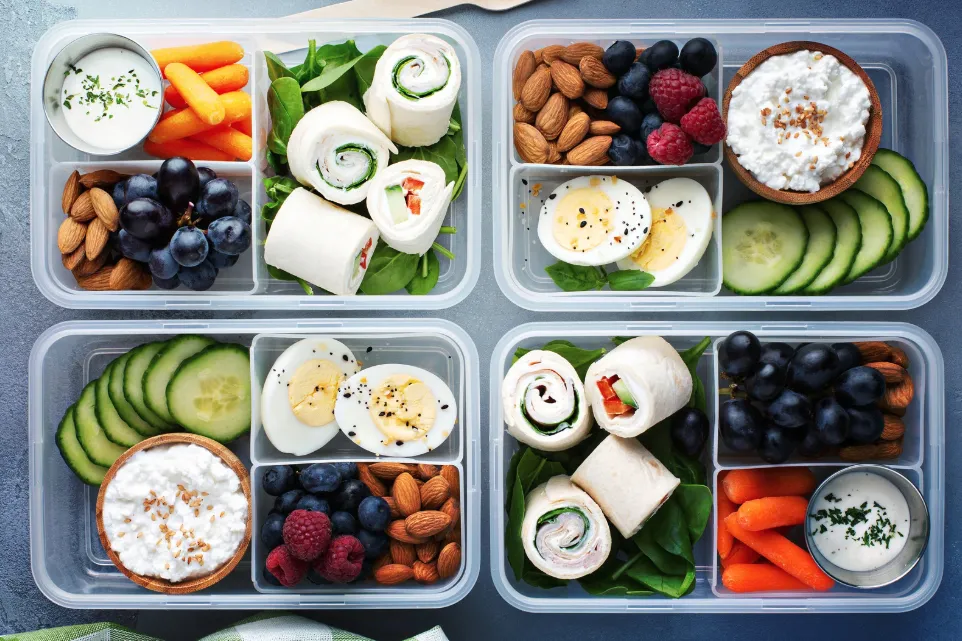
Are Your Snacks Healthy?
Are Your Snacks Healthy?
You grab a “healthy” snack from the store thinking you’re making a good choice. But what if that so-called healthy option is actually packed with hidden sugars, unhealthy oils, and additives that derail your health goals? Today, we’re uncovering the truth about “healthy” snacks and how to choose better options that actually fuel your body.
Why “Healthy” Labels Can Be Misleading
The term “healthy” is often slapped on snack packaging to attract health-conscious consumers, but it doesn’t always mean what you think. Labels like “low-fat,” “high-protein,” or “organic” can make snacks seem beneficial, but these claims often hide problematic ingredients. For example, “low-fat” options frequently contain added sugars to make up for lost flavor, and “high-protein” bars may be loaded with artificial sweeteners and fillers.
Marketing buzzwords can be deceiving, leading you to believe that a product is nutritious when it’s really just highly processed. Reading the ingredient list and nutrition label is key to uncovering what’s really inside.
Hidden Ingredients That Sabotage Your Health
Many “healthy” snacks are filled with ingredients that don’t align with your health goals. Here’s what to watch for:
Added Sugars Sugar isn’t always obvious—it can be listed under dozens of names like cane syrup, agave nectar, or even “natural sweeteners.” Granola bars, flavored yogurts, and protein shakes often have as much sugar as a candy bar. Excessive sugar spikes your blood sugar, leads to energy crashes, and contributes to weight gain and inflammation.
Unhealthy Oils Many snacks contain cheap oils like canola, soybean, or palm oil, which are highly processed and often inflammatory. Even “organic” snacks can use these oils, which are linked to imbalances in omega-6 and omega-3 fatty acids, promoting inflammation in the body.
Artificial Additives From artificial flavors and colors to preservatives, many snacks contain chemical additives that offer no nutritional value and may harm gut health. For example, some additives disrupt the gut microbiome, leading to bloating, digestive discomfort, and even weakened immunity.
Lack of Real Nutrients Even snacks marketed as “healthy” often lack real, whole-food ingredients. Products with long ingredient lists full of unfamiliar names are a red flag. Your body thrives on nutrients from whole foods like nuts, seeds, and fruits—not ultra-processed alternatives.
The Problem with Portion Sizes
Even if a snack is made with healthy ingredients, portion sizes can still lead to overconsumption. For instance, a single-serving bag of “healthy” trail mix can contain over 300 calories and a hefty dose of sugar if it includes dried fruit coated in sweeteners or chocolate chips. Eating mindlessly can turn a nutritious snack into an unintended calorie bomb.
How to Choose Truly Healthy Snacks
The good news is, not all snacks are bad. The key is to look beyond the marketing and focus on real, minimally processed options.
Read the Ingredient List: Look for short lists of recognizable ingredients. If you don’t know what an ingredient is, it’s probably best to avoid it.
Check Sugar Content: Aim for snacks with less than 5 grams of added sugar per serving. Natural sugars from whole fruits are fine, but watch for hidden sweeteners.
Opt for Whole Foods: Choose snacks that are as close to their natural form as possible, like raw nuts, fresh fruit, or plain Greek yogurt.
Prioritize Healthy Fats: Look for snacks with fats from sources like avocados, nuts, or seeds, rather than processed oils.
Easy Snack Swaps
Making smarter snack choices doesn’t have to be complicated. Here are a few ideas:
Swap sugary granola bars for homemade energy balls made with dates, nuts, and cocoa powder.
Choose air-popped popcorn seasoned with herbs over chips fried in unhealthy oils.
Opt for plain Greek yogurt topped with fresh fruit instead of flavored yogurts packed with sugar.
Pick raw, unsalted nuts instead of trail mix with added candies or sugary dried fruit.
How Foods Affect Mood, Learning, and Behavior

Final Thoughts
Not all “healthy” snacks are created equal, and some can do more harm than good. The next time you’re reaching for a quick bite, take a moment to check the label and think about what’s in it. By choosing minimally processed snacks made from whole foods, you can fuel your body without sabotaging your health goals. Small changes, like making your own snacks or sticking to simple ingredients, can make a big difference in how you feel and perform every day.
